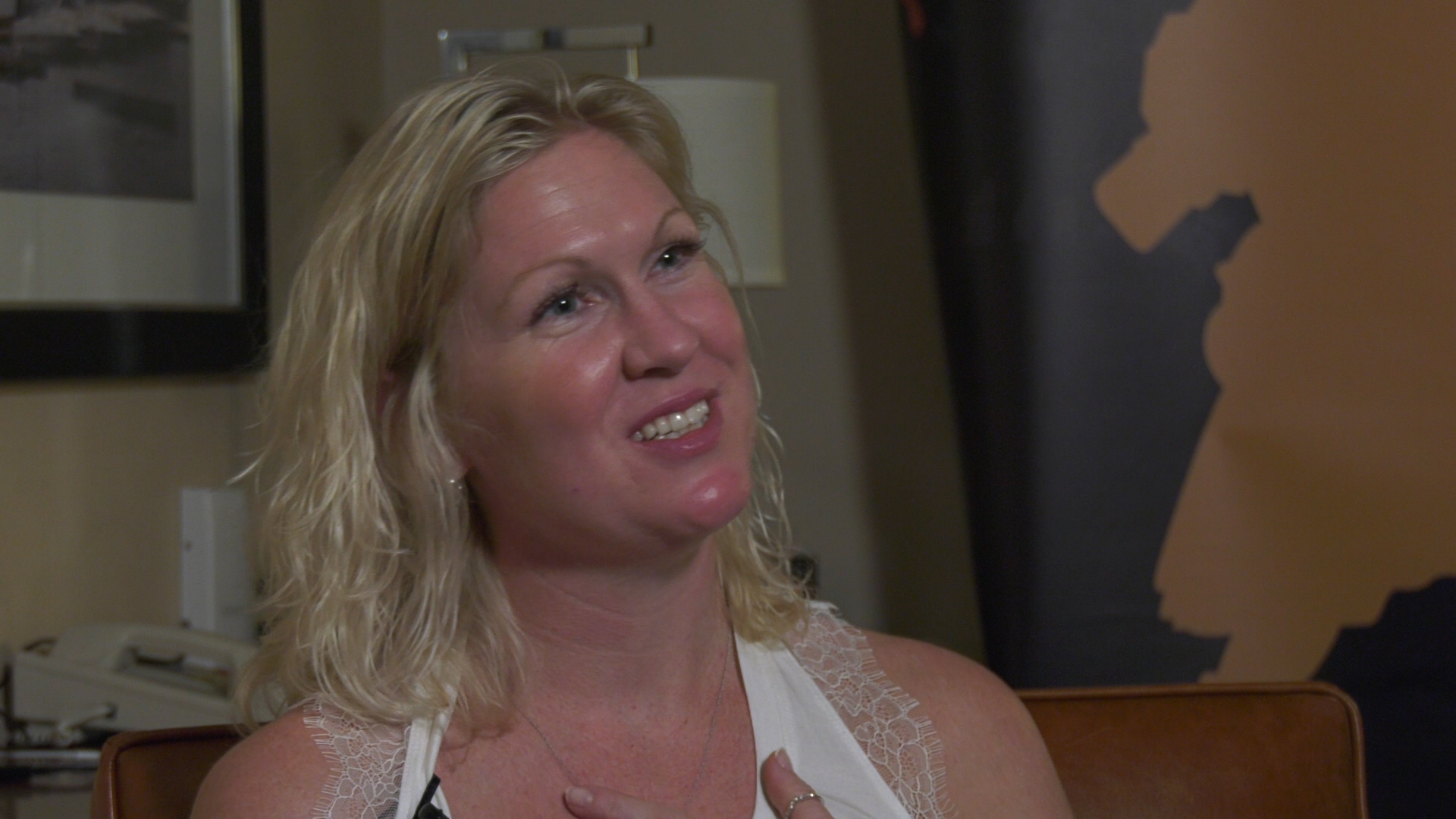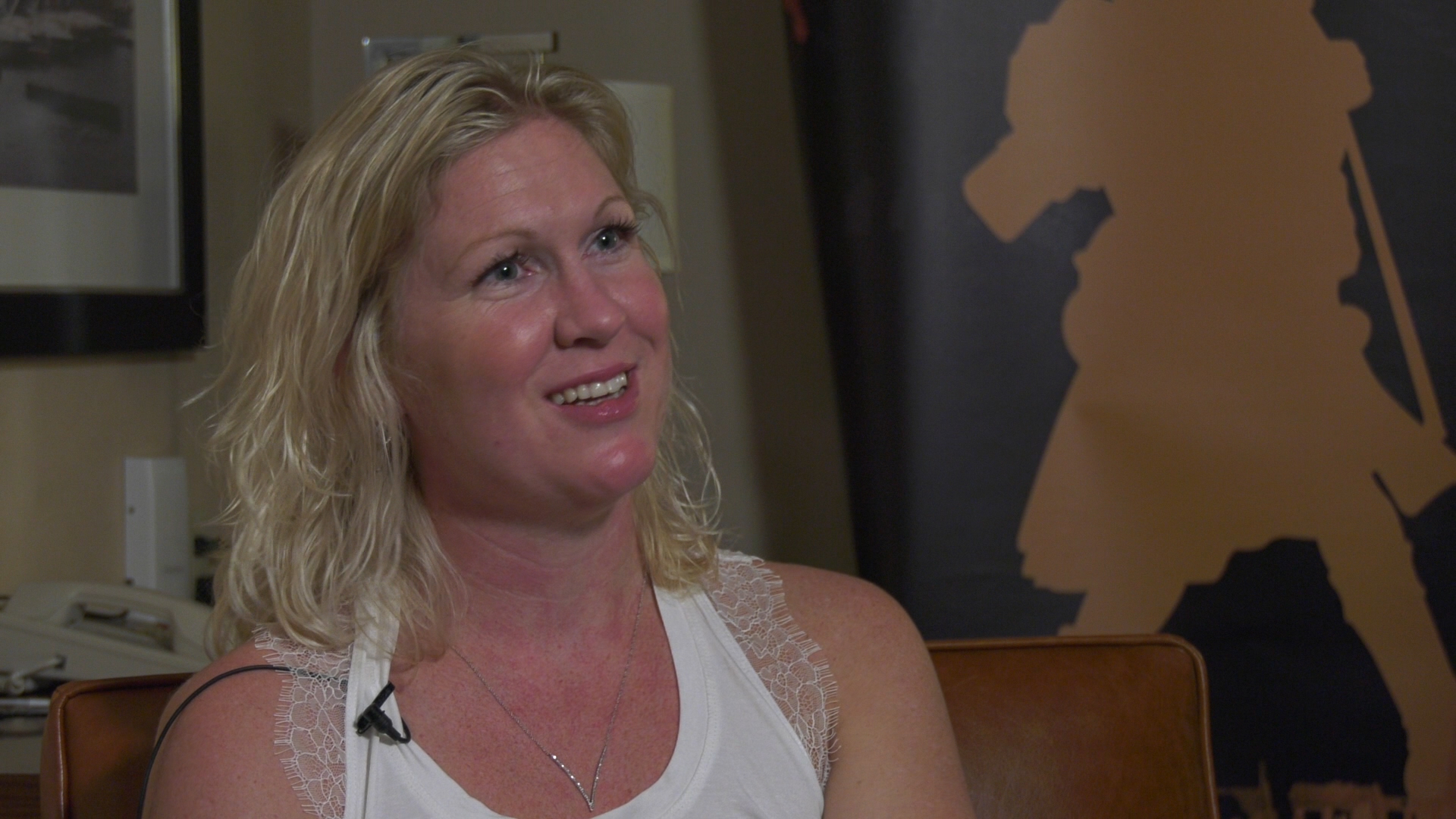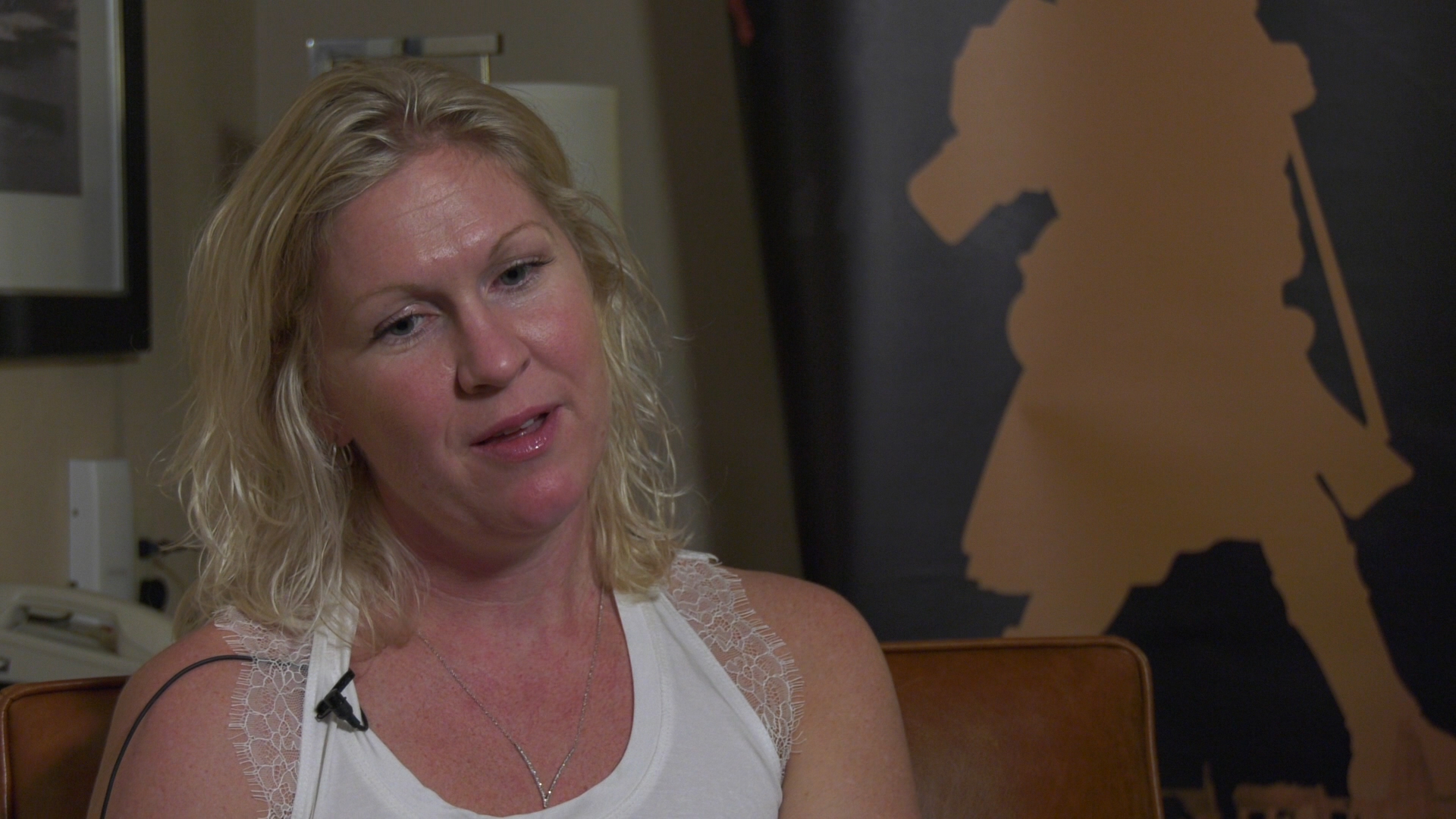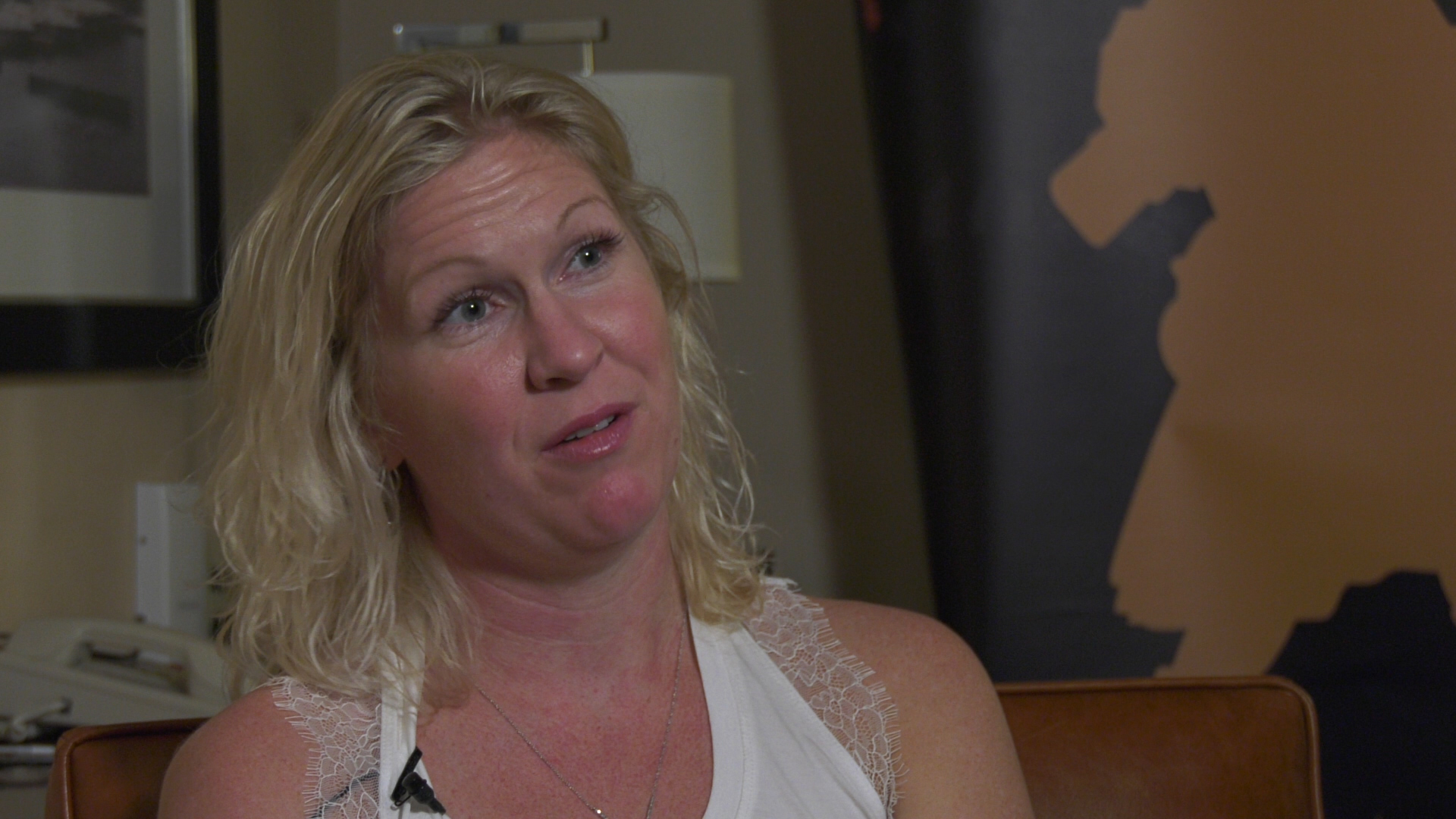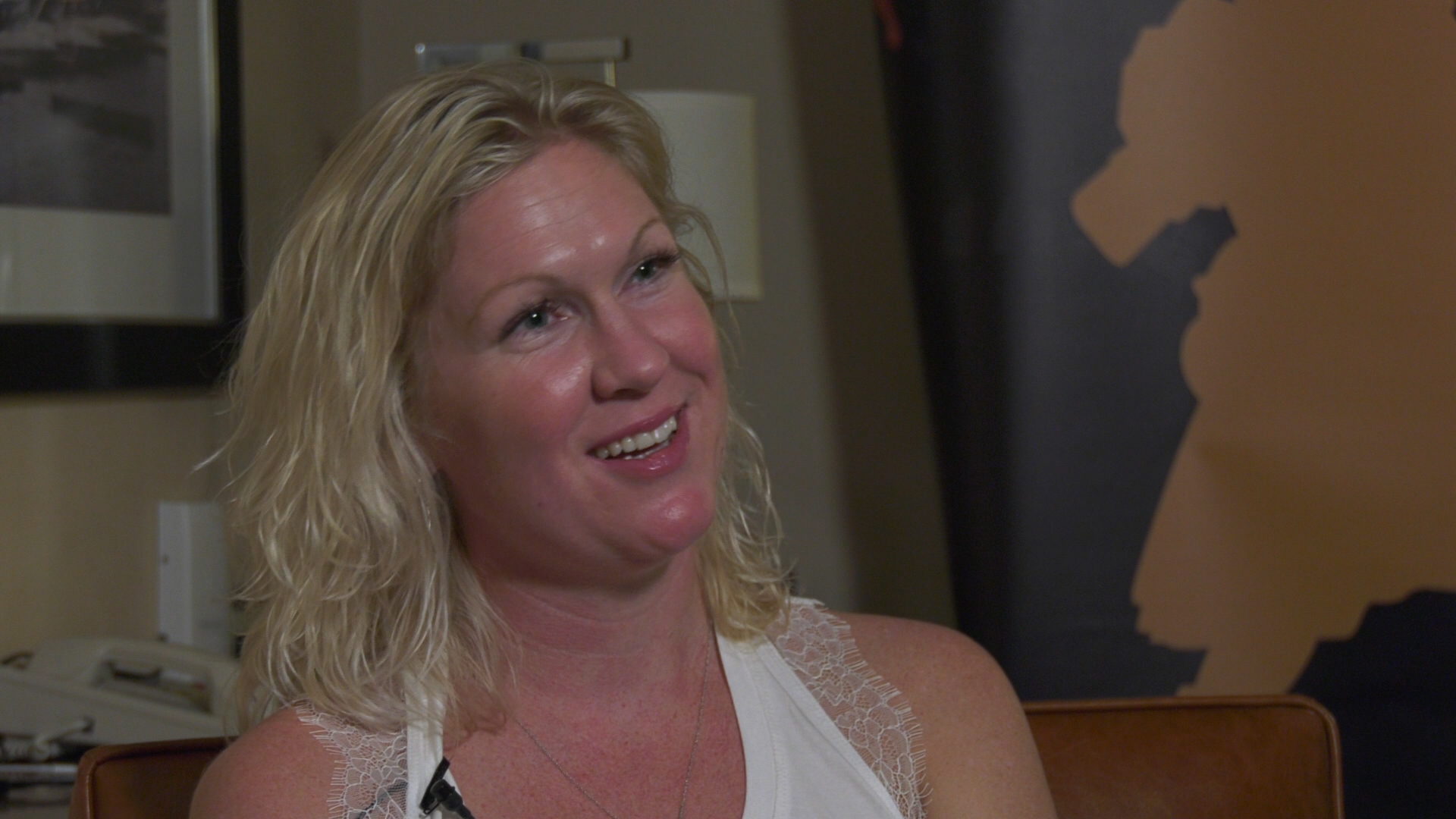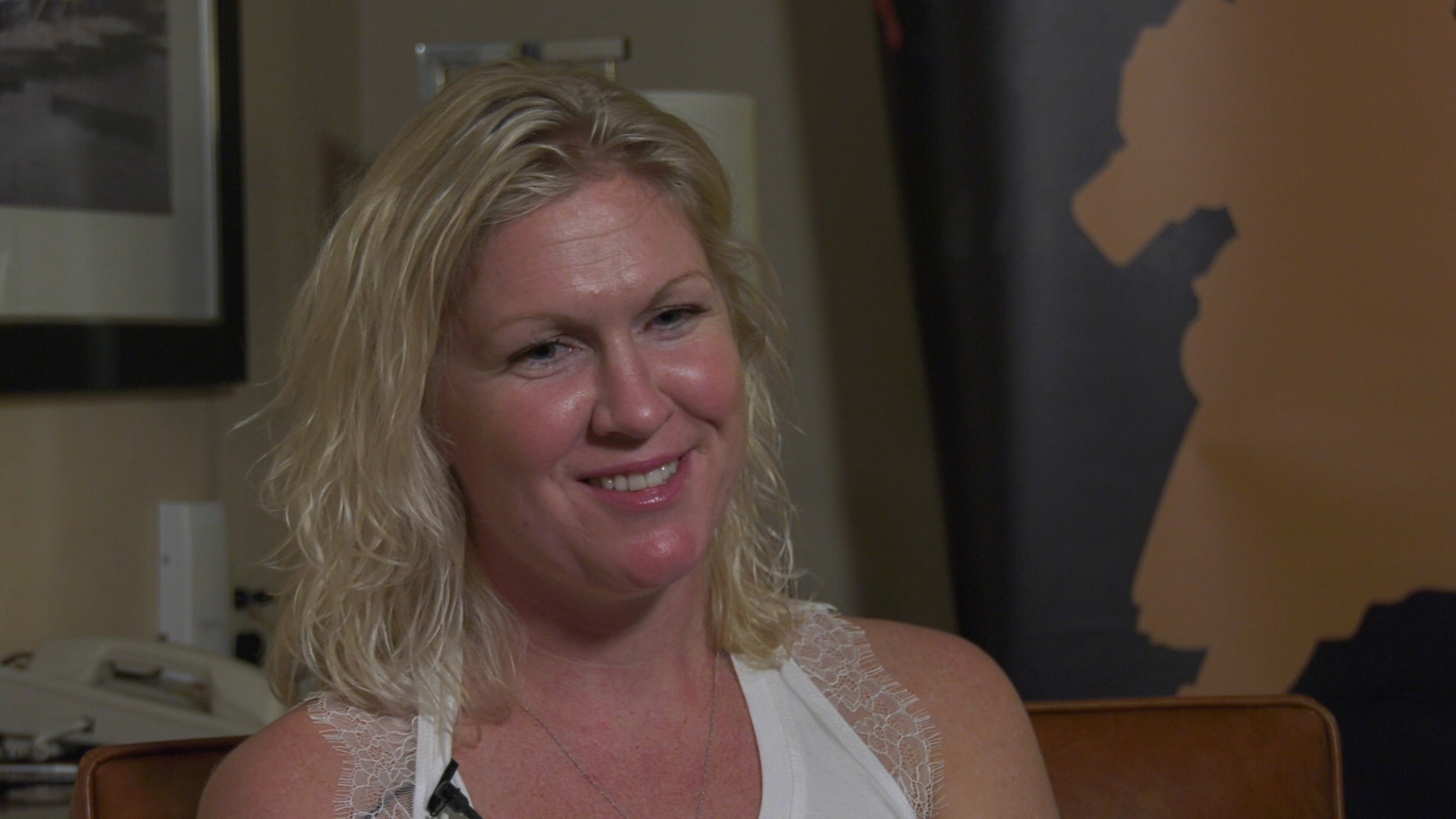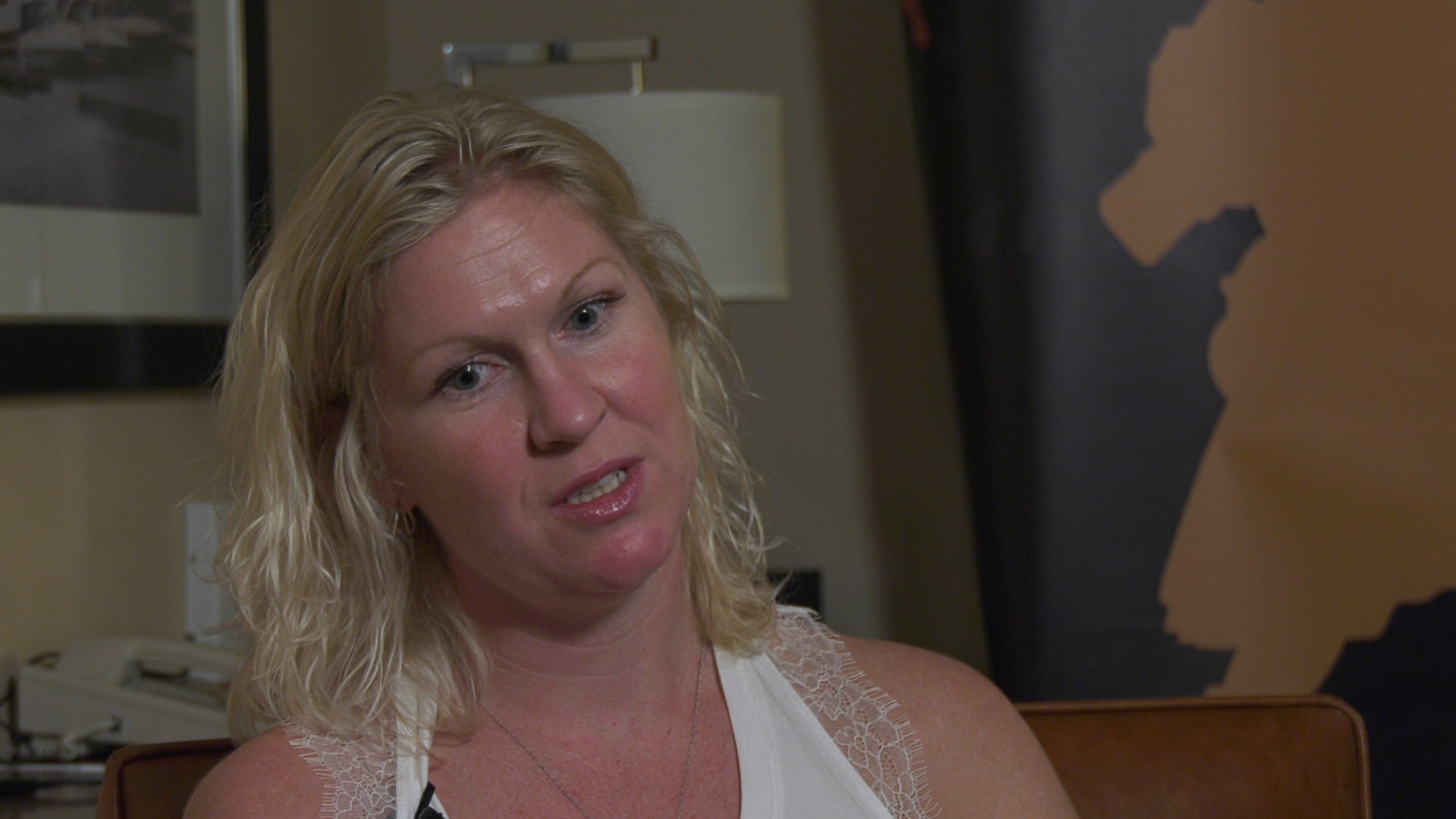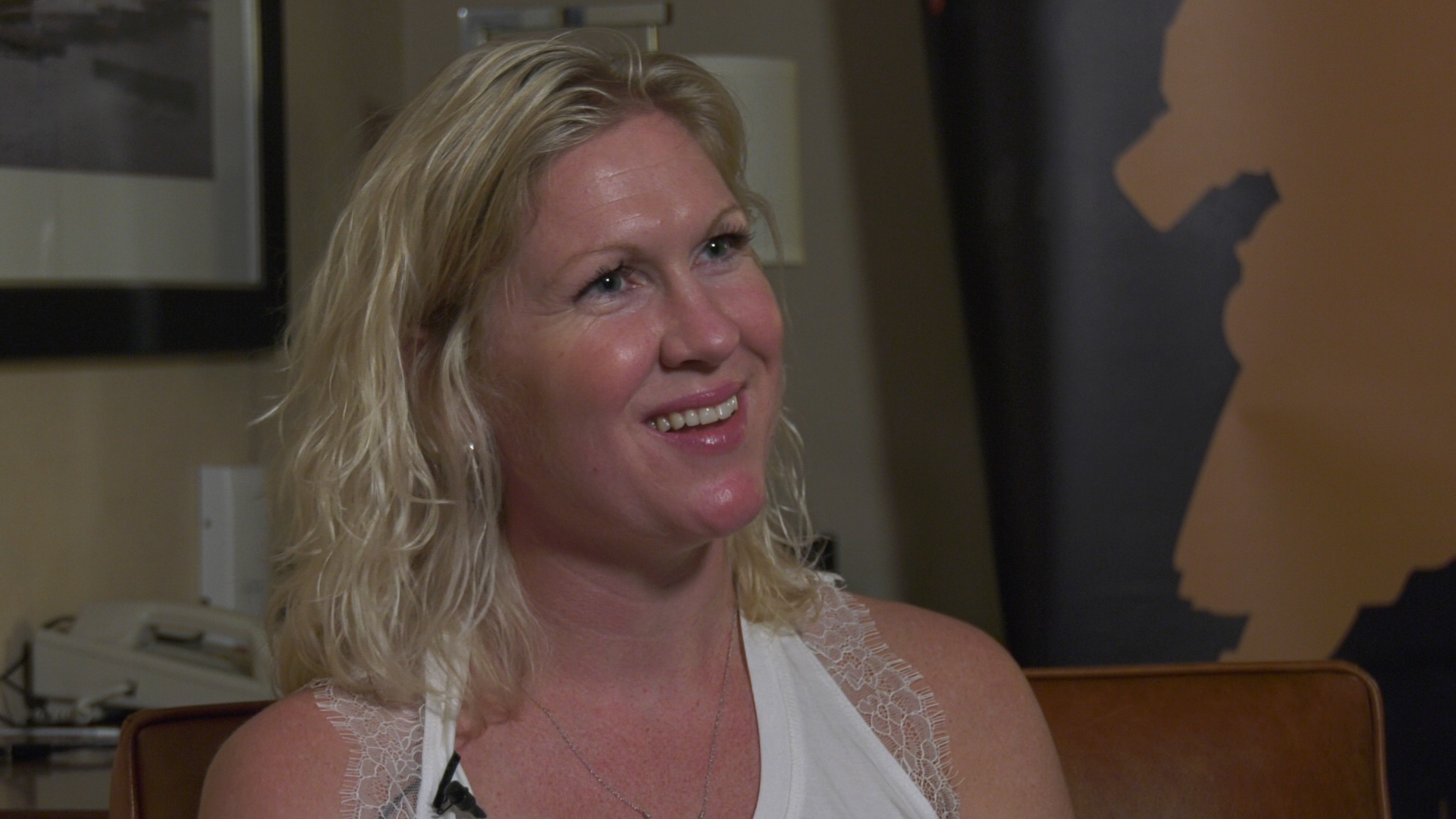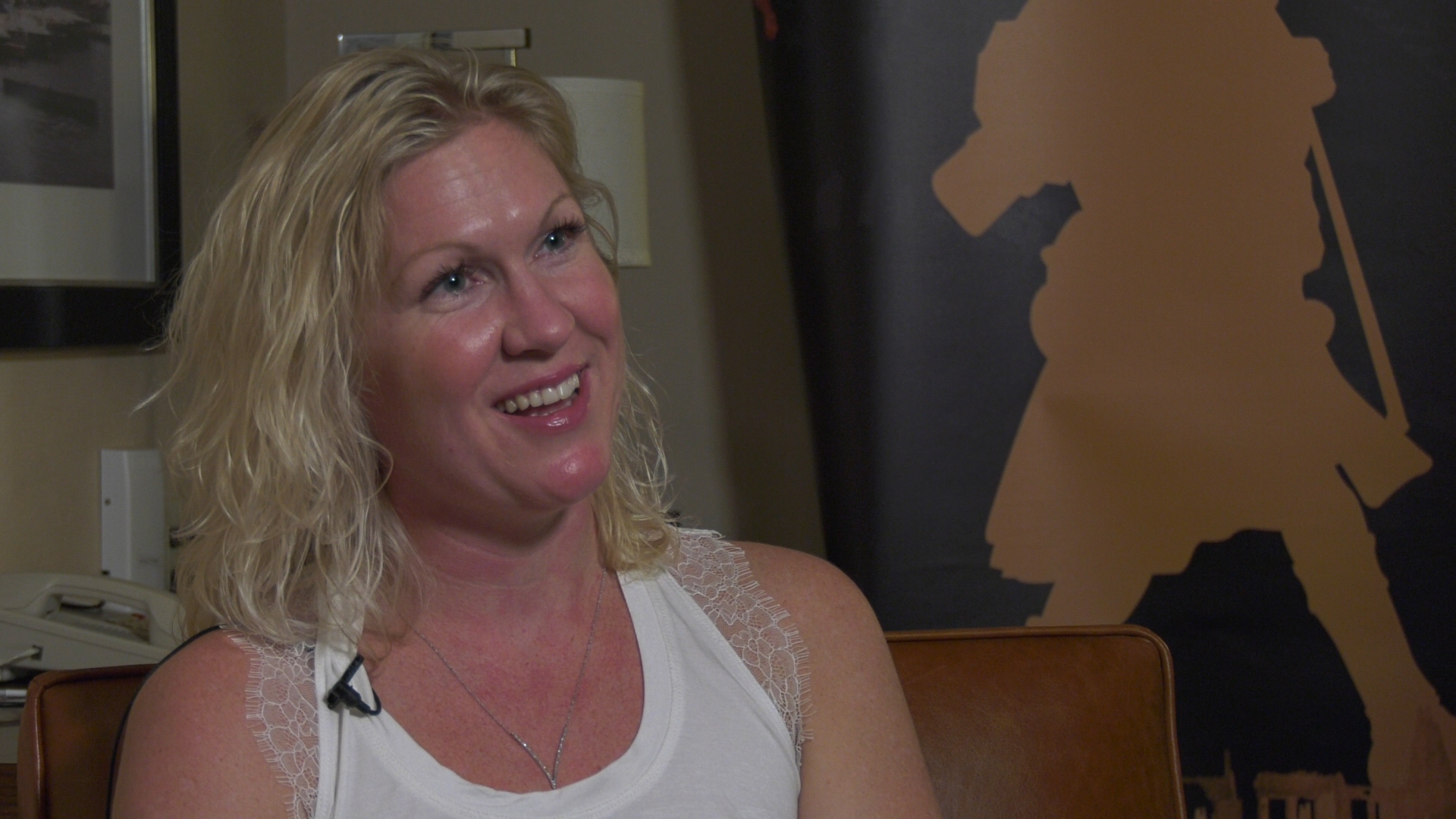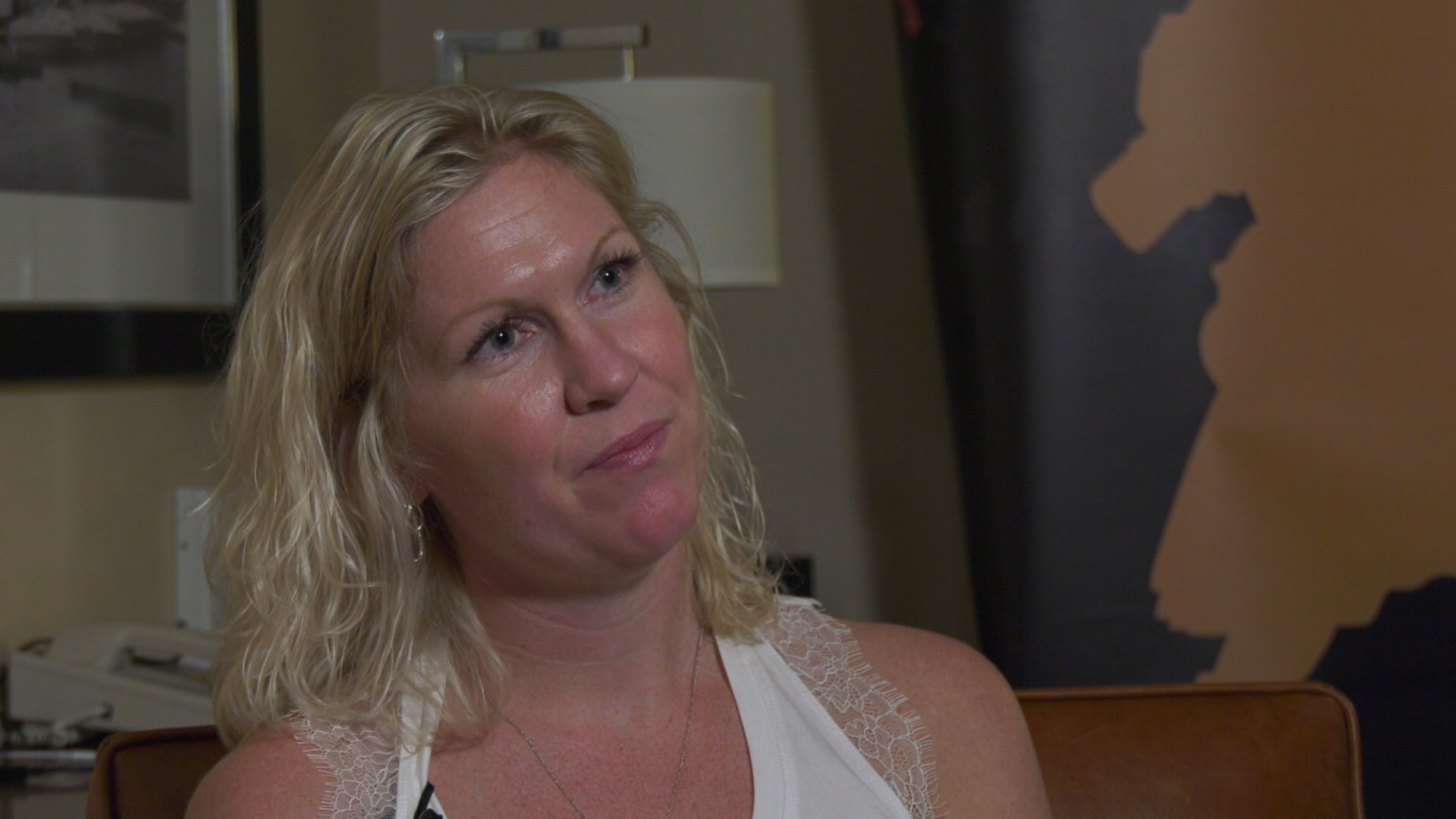Well it doesn’t go as easy as you
thought it was going to go. I mean
I can’t speak for everyone.
Myself personally as I kind of
alluded to earlier I did not realize what
I had become while I was over there.
I was good with it. That doesn’t fit
into Canadian society so well.
So I think the first thing I realized,
I thought I was fine and went to go
get in the car. My husband at the
time picked me up at the building
where we all meet when you come
back to Edmonton. Got in the car and
I wasn’t used to being in a vehicle
where traffic could just drive by you.
We drove down the yellow line in
Kandahar and if you did not get out
of the way we insured you got out
of the way whether it was a round or
two in the hood of the vehicle or the
escalation of kind of force to get the
message across that we
are coming down the road now,
please move aside. So I hadn’t driven
by a vehicle in months and the
pucker factor of “oh my goodness!”
because if a vehicle did get that close
to you over there you would suspect
that vehicle was going to explode or
there was a bomb on board.
There would be no reason for a
vehicle to approach any of our
convoys unless it was for
a bad purpose.
So I only lived ten minutes from the
base and I had my head between my
legs like down on my lap driving home.
I am like okay that was an interesting
experience. We had a couple days of
leave when you got home.
And I had to go back up to the base
the first day you come back you go
back to the base. I had to have,
my husband went to work.
I had to have, a different time he
went to work, I had to have him
come back and pick me up because
I couldn’t drive to go to work.
I didn’t drive vehicles in Kandahar and
there was no way I was driving a car.
It was one road. I knew nothing
was going to happen. I get it, we’re in
Edmonton but that sensation of having
vehicles so close to drive I couldn’t do it.
So he comes and picks me up,
drops me off, that’s fine.
I do my check in that I had to do,
he drives me back home.
The next day I made myself get in the
vehicle and made it around the block,
and yah I can’t do this right now.
I don’t need to do it.
That’s fine I have a few days off.
So I knew that had to change.
Obviously you can’t live like that but
I wasn’t ready to deal with that.
Then I went to go to sleep and
I woke up. I had these, you are
always like going for your weapon and
not having that made me feel very
like naked, exposed if you will and,
you know, always looking over
your shoulder. Then I noticed I
wouldn’t sit with my back to a
door or wouldn’t stand in front of
an open window or these little things
like this and this heightened
sense of reaction. And then I missed
the guys I was with. They went to Shilo
and I went back to Edmonton.
So I didn’t know how they
were all doing. And yes there
were soldiers that came back to
Edmonton too but they
weren’t mine. I wanted to go talk
to my guys and we didn’t have,
we weren’t all cell phone, texting,
Facebook, all that stuff wasn’t
around like right then.
So I had no one to really
compare my own experiences to in
Edmonton so I thought okay
I need to figure this out.
So I started overcompensating.
So I painted the entire bathroom
or I rearranged, I ordered furniture
for the living room and
I just busied myself.
But I was longing for someone to
ask me what time it was,
“Hey Doc I want this,” or hey!
There was no one asking me
anything, no one waking me up
in the middle of the night,
“Hey my roommate is sick,
I think you should come see them!”
It just was gone and so
I was trying to fill this void.



